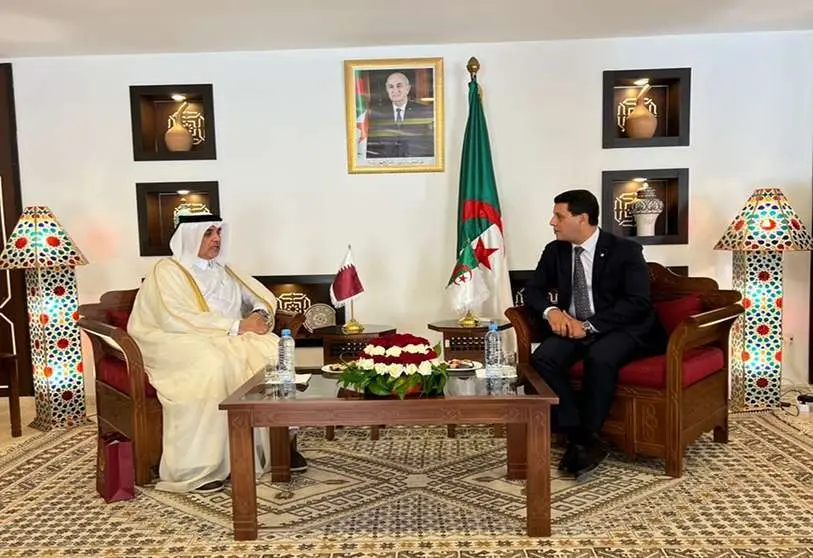Qatar pours investment into Algeria's tourism sector to put pressure on Tunisia

The Qatari hotel chain Retaj was at the centre of the signing of a framework agreement between Doha and Algiers this week. The tiny Gulf country plans to strengthen its investments in Algeria and bolster the tourism sector of its main North African partner to make it competitive with its neighbours. In the coming months, the Qatari company is expected to develop and exploit the services offered by the Algerian state-owned company Hôtellerie, Tourisme et Thermalisme (HTT).
The representatives of the Algerian and Qatari groups signed their signatures on Monday under the watchful eyes of the Algerian Minister of Tourism, Yacine Hammadi, the Qatari ambassador in Algiers, Abdulaziz Ali Naama, the director of the hotel complex, Anouar Yacine Abdelouahed, and Sheikh Nayef bin Eid Al Thani, representative of the Retaj chain. Hammadi then stressed "the importance of benefiting from Qatar's successful experience" in attracting tourists.
The deal poses a frontal threat to the interests of Tunisia, whose economy is heavily dependent on this sector. If Algeria improves its tourism model, Tunisia would receive fewer visitors per year, which would reduce its tourism revenues and hit the state's impoverished coffers at an extremely delicate time. Kaïs Saied's government is desperately seeking a deal with the International Monetary Fund (IMF).

Some analysts have interpreted the tourism investment in Algeria as a Qatari retaliation against Saied for not moving closer to the Islamist orbit of Qatar, Turkey and, less assiduously, Algeria. This factor would explain recent diplomatic moves by Doha, which has sought closer relations with Algiers and Tripoli, controlled by Prime Minister Abdel Hamid Dbeibé's government, which is also Islamist. Qatar is thus trying to encircle Saied.
"During his election campaign, Saied was as enigmatic for Tunisians as he was for the international community," explains analyst Youssef Cherif at the Elcano Royal Institute. "Some accused him of siding with Turkey and Qatar, others of favouring the UAE and Egypt, while others went so far as to say that he was the puppet of Algeria and even Iran or Russia. The Tunisian leader's intentions remain unclear.
Cherif recalls that after Saied came to power, "Turkish President Recep Tayyip Erdoğan visited the North African country in the hope of dragging Tunisia into his Libyan campaign. Saied was also visited by Qatari emir Tamim bin Hamad Al Thani, who invited him to Doha. But this relationship quickly took a turn for the worse, as he and Ennahda leader Rached Ghannouchi did not get along."
"Qatar, which traditionally bails the country out when the going gets tough, refrained from helping when the economy disintegrated during the COVID-19 pandemic. And when the Turks criticised the dissolution of parliament in April 2022, the Tunisian authorities angrily counterattacked. The myth of the 'Turkish-Qatari puppet' did not hold up for long," Cherif adds.

As a result, Qatari investment in Tunisia plummeted, especially since the Tunisian president embarked on his constitutional reform project aimed at erasing the entire political legacy built by Ennahda. On 25 July 2021, the law professor delivered a coup d'état by dismissing the government and dissolving a parliament then presided over by the Islamists' leader, Rached Ghannouchi, the figure closest to Doha in Tunisian domestic politics.
Saied has emerged as one of the main enemies of political Islamism, and Qatar has chosen to respond. In Tunisia, the president has managed to drag the phenomenon to the margins of the system. He even threatened to eliminate Islam as a state religion in the new Magna Carta, enacted in July last year, which gave him virtually unlimited powers, with no checks and balances. But article 5 of the legal text states that Tunisia is "part of the Islamic Ummah" and that "it is up to the state alone to work to achieve the purposes of Islam by preserving the soul, honor, property, religion and freedom".
The Tunisian president may not be a political Islamist, but he is a devout Muslim who, like the voters who propelled him to the head of state after the 2019 presidential elections, has perceived Ennahda as the main culprit for the endemic corruption and economic crisis that has plagued Tunisia since the outbreak of the Arab Spring.








